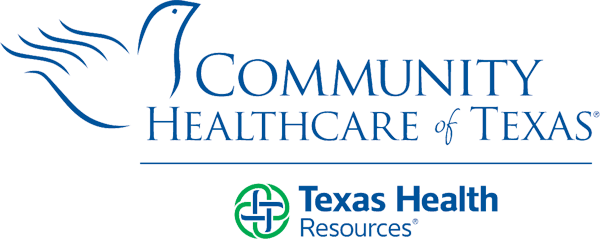Hospice Eligibility
 Beginning hospice early is proven to benefit patients as well as their family. Studies show patients actually live longer and have a better quality of life with hospice care, and caregivers suffer less emotional stress. A study published in the Journal of Pain and Symptom Management showed that survival was an average of 29 days longer for hospice patients than non-hospice patients.
Beginning hospice early is proven to benefit patients as well as their family. Studies show patients actually live longer and have a better quality of life with hospice care, and caregivers suffer less emotional stress. A study published in the Journal of Pain and Symptom Management showed that survival was an average of 29 days longer for hospice patients than non-hospice patients.
Pinpointing life expectancy is a difficult task, given the many variables for each patient. Determining the right time to refer for hospice care can be just as challenging.
To be eligible for hospice care, patients must have a diagnosis of a life-limiting illness or terminal disease with a life expectancy of six months or less, as well as a desire for comfort care rather than curative care.
Here are some general hospice guidelines by disease that may help in determining if a patient is hospice appropriate:
Amyotrophic Lateral Sclerosis (ALS)These are guidelines for Hospice eligibility. Community Healthcare of Texas will always conduct a team assessment for appropriateness prior to admission.
ALS tends to progress in a linear fashion over time. By the time patients become end-stage, muscle deterioration has become widespread, affecting all areas of the body, although initial predominance patterns do not persist. In end-stage ALS, two factors are critical in determining prognosis: ability to breathe and to a lesser extent, ability to swallow.
Patients are considered to be in the terminal stage of ALS (life expectancy of six months or less) if they meet the following criteria (must fulfill 1, 2, or 3).
- Patient must demonstrate critically impaired breathing capacity:
- Critically impaired breathing capacity as demonstrated by all of the following characteristics occurring within the 12 months preceding initial hospice certification:
- Vital capacity (VC) less than 30% of normal
- Significant dyspnea at rest
- Requiring supplemental oxygen at rest
- Patient declines artificial ventilation
- Critically impaired breathing capacity as demonstrated by all of the following characteristics occurring within the 12 months preceding initial hospice certification:
- Patient must demonstrate both rapid progression of ALS and critical nutritional impairment:
- a. Rapid progression of ALS as demonstrated by all of the following characteristics occurring within the 12 months preceding initial hospice certification:
- Progression from independent ambulation to wheelchair or bedbound status
- Progression from normal to barely intelligible or unintelligible speech
- Progression from independence in most or all activities of daily living (ADL) to needing major assistance by a caretaker in all ADLs.
- b. Critical nutritional impairment as demonstrated by all of the following characteristics occurring within the 12 months preceding initial hospice certification
- Oral intake of nutrients and fluids insufficient to sustain life
- Continuing weight loss
- Dehydration or hypovolemia
- Absence of artificial feeding methods
- a. Rapid progression of ALS as demonstrated by all of the following characteristics occurring within the 12 months preceding initial hospice certification:
- Patient must demonstrate both rapid progression of ALS and life-threatening complications:
- Rapid progression of ALS (see 2a above)
- Life-threatening complications as demonstrated by one of the following characteristics occurring within the 12 months preceding initial hospice certification
- Recurrent aspiration pneumonia (with or without tube feedings)
- Upper urinary tract infection, e.g. pyelonephritis
- Sepsis
- Recurrent fever after antibiotic therapy
These are guidelines for Hospice eligibility. Community Healthcare of Texas will always conduct a team assessment for appropriateness prior to admission.
The criteria below must be present at the time of initial certification or recertification for hospice. Alzheimer’s disease and related disorders may support a prognosis of six months or less under many clinical scenarios.
To be eligible for hospice, an individual should have a FAST score of greater or equal to 7 and documented specific co-morbid or secondary conditions meeting the criteria of structural or functional impairments together with any limitation in activity related to the secondary conditions such as impairment in mental functioning and movement functions.
Co-morbid conditions affecting beneficiaries with Alzheimer’s disease are by definition distinct from the Alzheimer’s disease itself – examples include coronary heart disease (CHD) and chronic obstructive pulmonary disease (COPD). Secondary conditions, on the other hand, are directly related to a primary condition – in the case of Alzheimer’s disease, examples include delirium and pressure ulcers.
The Reisberg-Functional Assessment Scale (FAST Scale) is a 16-item scale designed to parallel the progressive activity limitations associated with Alzheimer’s disease. The FAST Scale does not address the impact of co-morbid or secondary conditions.
Stage 7 identifies the threshold of activity limitation that would support a six-month prognosis.
FAST Scale Stages:
Stage 1: No difficulty, either subjectively or objectively
Stage 2: Complains of forgetting the location of objects; subjective work difficulties
Stage 3: Decrease job functioning evident to coworkers; difficulty in traveling to new locations
Stage 4: Decreased ability to perform complex tasks (e.g., planning dinner for guests, handling finances)
Stage 5: Requires assistance in choosing proper clothing
Stage 6: Decreased ability to dress, bathe, and toilet independently
Sub Stage 6a: Difficulty putting clothing on properly
Sub Stage 6b: Unable to bathe properly; may develop a fear of bathing
Sub Stage 6c: Inability to handle mechanics of toileting (i.e., forgets to flush, does not wipe properly)
Sub Stage 6d: Urinary incontinence
Sub Stage 6e: Fecal incontinence
Stage 7: Loss of speech, locomotion, and consciousness
Sub Stage 7a: Ability to speak limited (1 to 5 words a day)
Sub Stage 7b: All intelligible vocabulary lost
Sub Stage 7c: Nonambulatory
Sub Stage 7d: Unable to sit up independently
Sub Stage 7e: Unable to smile
Sub Stage 7f: Unable to hold head up
2. Documentation of specific secondary conditions (i.e., pressure ulcers, UTI, dysphagia, aspiration pneumonia) related to Alzheimer’s disease will support eligibility for hospice care.
These are guidelines for Hospice eligibility. Community Healthcare of Texas will always conduct a team assessment for appropriateness prior to admission.
Medical criteria 1 and 2 listed below would support a terminal prognosis for individuals with a diagnosis of heart disease and would support a terminal diagnosis if met.
- Patient is currently being optimally treated with diuretics and vasodilators, which may include angiotensin-converting enzymes (ACE) inhibitors or the combination of hydralazine and nitrates. If side effects, such as hypotension or hyperkalemia, prohibit the use of ACE inhibitors or the combination of hydralazine and nitrates, this must be documented in the medical records, or if the Patient is having angina pectoris, at rest, resistant to standard nitrate therapy and is either not candidates or decline invasive procedures.
- The patient has significant symptoms of recurrent congestive heart failure (CHF) at rest and exhibits the following:
- Unable to carry on any physical activity without symptoms
- Symptoms are present even at rest
- If any physical activity is undertaken, symptoms are increased
- Documentation of the following factors may provide additional support for end-stage heart disease:
- Treatment-resistant symptomatic supraventricular or ventricular arrhythmias
- History of cardiac arrest or resuscitation
- History of unexplained syncope
- Brain embolism of cardiac origin
- Concomitant HIV disease
- Documentation of ejection fraction of 20% or less
These are guidelines for Hospice eligibility. Community Healthcare of Texas will always conduct a team assessment for appropriateness prior to admission.
Patients will be considered to be in the terminal stage of the illness (life expectancy of six months or less) if they meet the following criteria (1 and 2 must be present; factors from 3 will add supporting documentation):
- CD4+Count <25 cells/mcL or persistent viral load >100,000 copies/ml, plus one of the following:
- CNS lymphoma
- Untreated, or not responsive to treatment, wasting (loss of 33% lean body mass)
- Mycobacterium avium complex (MAC) bacteremia, untreated, unresponsive to treatment, or treatment refused
- Progressive multifocal leukoencephalopathy
- Systemic lymphoma, with advanced HIV disease and partial response to chemotherapy
- Visceral Kaposi’s sarcoma unresponsive to therapy
- Renal failure in the absence of dialysis
- Cryptosporidium infection
- Toxoplasmosis, unresponsive to therapy
- Decreased performance status, as measured by the Karnofsky Performance Status (KPS) scale, of greater than or equal to 50
- Documentation of the following factors will support eligibility for hospice care:
- Chronic persistent diarrhea for one year
- Persistent serum albumin <2.5
- Concomitant, active substance abuse (Medicare only)
- Age >50 years
- Absence of antiretroviral, chemotherapeutic, and prophylactic drug therapy related
- Advance AIDS dementia complex
- Toxoplasmosis
- Congestive heart failure, symptomatic at rest, New York Heart Association (NYHA) classification Stage IV (Medicaid only)
Documentation Requirements
- Documentation certifying terminal status must contain enough information to confirm terminal status upon review. Documentation meeting the above criteria would meet this requirement.
- If the patient does not meet the above criteria yet is deemed appropriate for hospice care, sufficient documentation of the patient’s condition that justifies terminal status, in the absence of meeting the above criteria, would be necessary.
- Recertification for hospice care requests that the same standards be met.
These are guidelines for Hospice eligibility. Community Healthcare of Texas will always conduct a team assessment for appropriateness prior to admission.
Patients will be considered to be in the terminal stage of liver disease (life expectancy of six months or less) if they meet the following criteria (1 and 2 must be present; factor 3 will lend supporting documentation).
- The patient should show both 1 and 2:
- Prothrombin time prolonged more than five seconds over control or International Normalized Ratio (INR)>1.5
- Serum albumin <2.5gm/dl
- End-stage liver disease, if present and the patient shows at least one of the following:
- Ascites, refractory to treatment, or patient noncompliant
- Spontaneous bacterial peritonitis
- Hepatorenal syndrome (elevated creatinine and BUN with oliguria (<400ml/day) and urine sodium concentration <10 mEq/1
- Hepatic encephalopathy, refractory to treatment or patient noncompliant
- Recurrent variceal bleeding, despite intensive therapy
- Documentation of the following factors will support eligibility for hospice care:
- Progressive malnutrition; muscle wasting with reduced strength and endurance
- Continued active alcoholism (>80 gm/ethanol/day)
- Hepatocellular carcinoma
- HBsAg (Hepatitis B) positivity; Hepatitis C refractory to interferon treatment
Patients awaiting liver transplants who otherwise fit the above criteria may be certified for the Medicare hospice benefit, but if a donor organ is procured, the patient must be discharged from hospice.
These are guidelines for Hospice eligibility. Community Healthcare of Texas will always conduct a team assessment for appropriateness prior to admission.
Patients will be considered to be in the terminal stage of pulmonary disease (life expectancy of six months or less) if they meet the following criteria.
The criteria refer to patients with various forms of advanced pulmonary disease who eventually follow a final common pathway for end-stage pulmonary disease (1 and 2 must be present; Documentation of 3, 4 and/or 5 will lend supporting documentation):
- Severe chronic lung disease as documented by both 1 and 2:
- Disabling dyspnea at rest, poorly or unresponsive to bronchodilators, resulting in decreased functional capacity, e.g., bed-to-chair existence, fatigue, and cough (documentation of Forced Expiratory Volume in one second [FEV1], after bronchodilator, less than 30% of predicted is objective evidence for disabling dyspnea.
- Progression of end-stage pulmonary disease, as evidenced by prior increasing visits (six or more within the last 12 months) to the emergency department or prior hospitalizations for pulmonary infections and/or respiratory failure (documentation for serial disease of FEV1>40 ml/year is objective evidence for disease progression, but is not necessary to obtain).
- Hypoxemia at rest on room air, as evidenced by pO2 greater than or equal to 88% (these values may be obtained from recent hospital records) or hypercapnia, as evidenced by pCO23 50 mmHg (this value may be obtained from recent hospital records).
- Cor pulmonale and right heart failure (RHF) secondary or pulmonary disease (e.g., not secondary to left heart disease or valvulopathy).
- Unintentional progressive weight loss or greater than 10% of body weight over the preceding six months.
- Resting tachycardia >100/min
These are guidelines for Hospice eligibility. Community Healthcare of Texas will always conduct a team assessment for appropriateness prior to admission.
Patients will be considered to be in the terminal stage of renal disease (life expectancy of six months or less) if they meet the following criteria.
Acute renal failure 1, 2 and 3 must be present; factors from 4 will lend supporting documentation.
1. The patient is not seeking dialysis or renal transplant
2. Creatinine clearance <10 cc/min (<15 cc/min. for diabetes)
3. Serum creatinine >8.0 mg/dl (>6.9 mg/dl for diabetes)
4. Comorbid conditions:
- Mechanical ventilation
- Malignancy (other organ system)
- Chronic lung disease
- Advanced cardiac disease
- Advanced liver disease
- Sepsis
- Immunosuppression/AIDS
- Albumin <3.5 gm/dl
- Cachexia
- Platelet count <25,000
- Disseminated intravascular coagulation
- Gastrointestinal bleeding
Chronic renal failure 1, 2 and 3 must be present; factors from 4 will lend supporting documentation
1. The patient is not seeking dialysis or renal transplant
2. Creatinine clearance <10 cc/min (<15 cc/min. for diabetes)
3. Serum creatinine >8.0 mg/dl (>6.9 mg/dl for diabetes)
4. Signs and symptoms of renal failure:
- Uremia
- Oliguria (<400 cc/day)
- Intractable hyperkalemia (>7.0) not responsive to treatment
- Uremic pericarditis
- Hepatorenal syndrome
- Intractable fluid overload, not responsive to treatment
These are guidelines for Hospice eligibility. Community Healthcare of Texas will always conduct a team assessment for appropriateness prior to admission.
The medical criteria listed below would support a terminal prognosis for individuals with a diagnosis of stroke. Medical criteria 1 and 2 are important indicators of functional and nutritional status, respectively, and would thus support a terminal prognosis if met.
- A Palliative Performance Scale (PPS) of 40% or less
- Degree of ambulation
- Activity/extent of disease
- Inability to do self-care without assistance
- Normal to reduced food/fluid intake
- State of consciousness (fully conscious or drowsy/confused)
- Inability to maintain hydration and caloric intake with one of the following:
- Weight loss >10% during previous six months
- Weight loss >7.5% in previous three months
- Serum albumin <2.5 gm/dld
Current history of pulmonary aspiration without effective response to speech-language pathology interventions to improve dysphagia and decrease aspiration events.
Calorie counts documenting inadequate caloric/fluid intake if a beneficiary does not meet both medical criteria 1 and 2 the documentation should describe a relevant comorbidity and/or rapid decline.
Our team is on call 24 hours a day for patient care and consultation or to answer any questions. You can refer to Community Healthcare of Texas with confidence. Our team of professionals serves as an extension of your services, offering expert end-of-life care and support.
To make a referral or explore care options for a patient, call Community Healthcare of Texas at 800.958.4942.
![Community Healthcare of Texas [logo]](https://www.chot.org/wp-content/themes/community-healthcare-of-texas-2019/images/logo.png)




